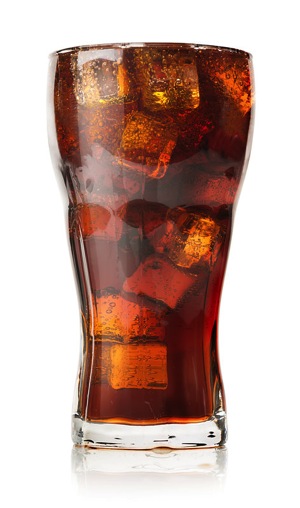
If you regularly drink diet soda and use artificial sweeteners because you think it will help you lose weight, you're unwittingly sabotaging your efforts. Sure, artificial sweeteners like sucralose, saccharine, and aspartame save on calories, but a recent Israeli study shows they can skew the composition of gut bacteria, or our microbiome in a way that promotes obesity and diabetes.
We're increasingly learning about the trillions of bacteria that live in the gut, weighing in at 3 to 4 pounds, and the profound influence they have on human health and behavior. In addition to providing nutrients and aiding in the digestive process, gut bacteria also influence moods, behavior and mental health; immune function; energy levels; and how well we burn or store fat.
Our microbiome consists of beneficial and harmful bacteria. We carry a diverse array of bacteria — hundreds of varieties — and the proportions of these bacteria can play a role in how our body, brain, and even personality function.
Unfortunately, as promising as the idea of calorie-free drinks sound, they skew the balance of bacteria in the gut toward high blood sugar. This in turn promotes insulin resistance (pre-diabetes), fat storage, and chronic inflammation. In the study this phenomenon was referred to as glucose intolerance.
Artificial sweeteners promote high blood sugar
The study began by looking at groups of mice that were given plain water, water with sugar added, or water with an artificial sweetener added. After 10 weeks the groups given the artificial sweeteners consistently showed high blood sugar, regardless of whether the sweetener used was saccharine, aspartame, or sucralose. Even a group of mice given a high-fat diet and sugar water maintained healthy blood glucose levels while the group given a high-fat diet and artificial sweeteners did not.
To further validate the findings, researchers transplanted fecal matter from the mice given artificial sweeteners into germ-free mice. The germ-free, too, developed glucose intolerance. When scientists gave the affected mice antibiotics to kill the overgrowth of fat-promoting bacteria, their blood sugar normalized.
Studying artificial sweeteners in humans
Of course, not everyone is going to be sold on the results of a study using mice. After all, we're not mice. So the researchers ran the study on a small group of human volunteers, all of whom showed elevated blood sugar and alterations in their gut bacteria composition after just one week.
How to cultivate healthy gut bacteria
In addition to avoiding artificial sweeteners, there are other ways to cultivate your inner garden of gut flora to promote fat burning instead of weight gain. One of the best ways is to make vegetables the primary part of your diet, including cultured vegetables. Not only are they loaded with fiber, vitamins, and minerals, they promote and maintain good gut bacteria. At the same time, avoiding processed foods, sugars and sweeteners, and artificial additives will prevent the bad bacteria from taking over and giving you health problems.
Ask my office for probiotic supplement recommendations to further enhance your good gut bacteria.



Latest from the Blog
The Death of Red Dye #3
January 15, 2025What Is Red Dye No. 3? Red Dye No. 3, or Erythrosine, is a synthetic food color derived from coal tar. It was first approved by the FDA in the 1950s and quickly became one of the most popular artificial colors in food and cosmetics. Red Dye No. 3 was used in everything from candies, […] Read more
Latest from the Blog
Do You Know What Is In Your Protein Powder?
What’s Really in Your Protein Powder? Understanding the Risks Protein powders are a staple in many health-conscious diets, from athletes seeking muscle recovery to those simply aiming to boost their daily protein intake. With a wide variety of options available, choosing the right one can feel overwhelming. However, recent findings have raised concerns about what’s […] Read more